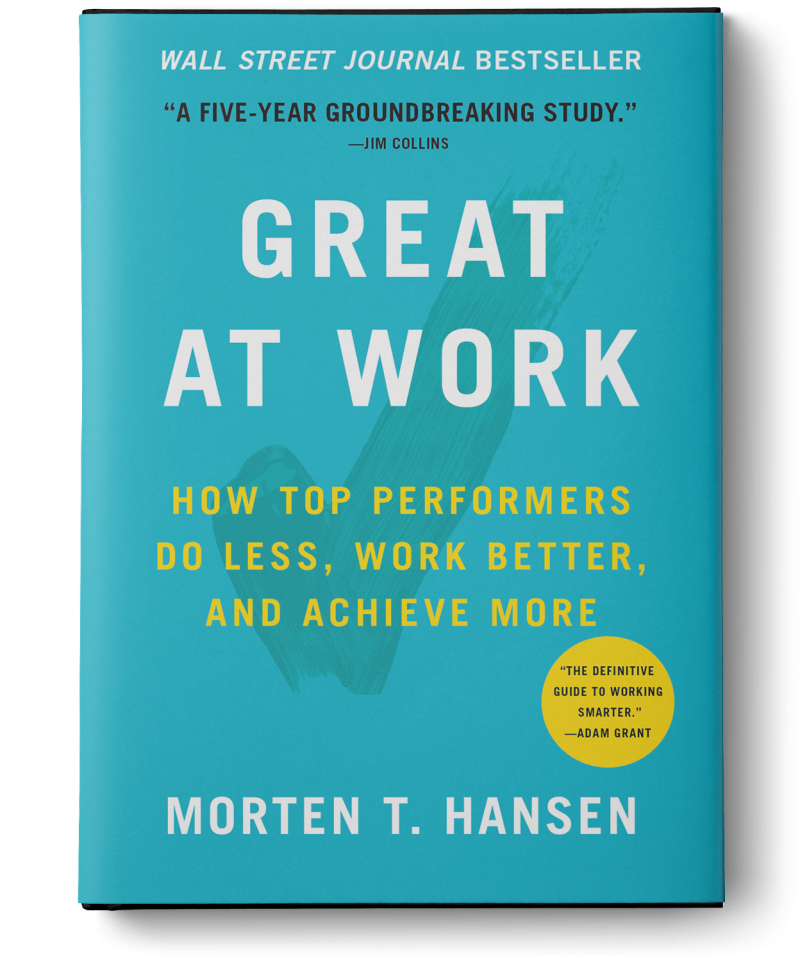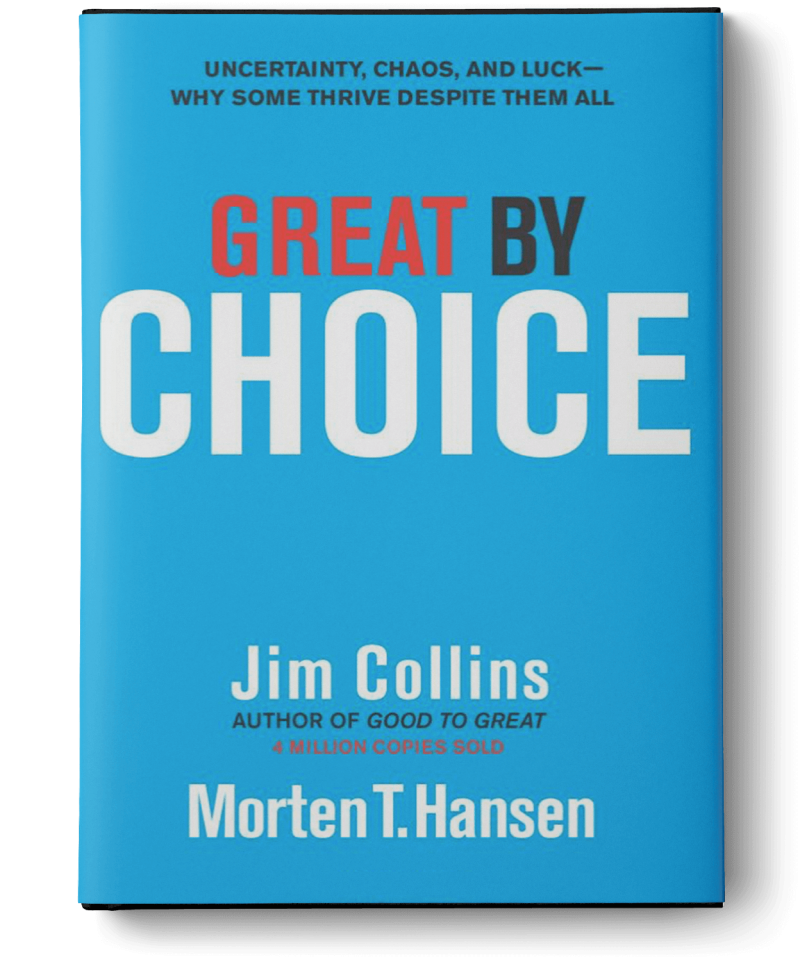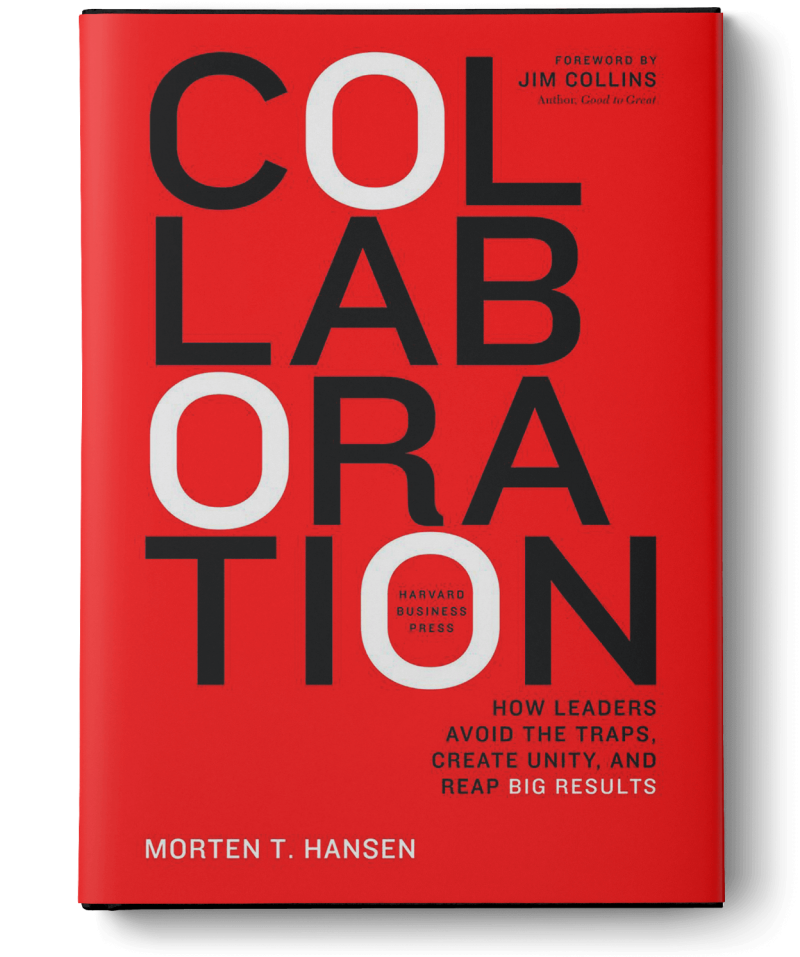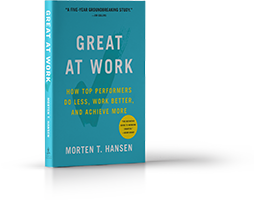Graduates: Don’t Be a Squeezed Orange
When you start your career, it can feel like you’ve got something to prove. You do, but it’s not stamina. Those all-nighters you pulled in college preparing for exams and completing big projects aren’t a template for success in the workplace. If you want to impress your boss, don’t try to work harder than everyone else. In fact, better to cut back on all those hours.
Sounds a little crazy, but it’s a lesson I learned firsthand when I landed my dream job right out of college. In an attempt to stand out, I worked around the clock—as much as 90 hours a week. I was on a first name basis with the cleaning crew that arrived at 5 a.m., but hardly had time for my girlfriend or myself. Ironically, I wasn’t the top performer; some of my coworkers did better work by working less.
I left that job to become a professor at Harvard Business School, and I found myself continuing to ponder why some people can perform better in fewer hours. To test the “work harder” concept, my team and I studied 5,000 managers and employees and found that if you put in between 30 and 50 hours per week on average, adding more hours on the job lifts your performance. Once you’re working between 50 and 65 hours per week, however, the benefit of adding additional hours drops off. And if you’re working 65 hours or more, your overall performance declines as you pile on the hours. Ouch!
Think of it like squeezing an orange. At first, you get a lot of liquid. As you continue to squeeze, however, your knuckles turn white and you extract a drop or two. Eventually, you reach the point where you’re squeezing as hard as you can, but producing no juice. You would have done better just to leave the well-squeezed orange alone.
You might be wondering why college libraries stay open 24/7 if long hours aren’t the answer? Well, you may have finished that term paper thanks to energy drinks and the pressure of a looming deadline, but if you’re being honest, the hours you worked were likely due to a combination of procrastination and over socialization. That’s not a sustainable formula for a career. If you want to prove yourself and impress your boss, work smarter rather than more. Set a target—say 40 to 50 hours—and work no more. Then get the most out of your hours with these three techniques.
Hone Your Focus
Identify the three most valuable activities you do in your new job. The value of your work is defined by measuring how much others benefit from it. For example, focus on improving customer service or preparing key presentations. Spend less time on “busywork” such as going to all kinds of meetings and pushing paperwork just to check a box. Channel your time and effort into excelling at the right activities and by eschewing much else whenever you can.
Tie Yourself to the Mast (21st century style)
Once you identify your three key activities, set clear rules around your time to fend off distraction. Greek hero Odysseus instructed his men to tie him to the ship’s mast so he could resist the songs of the beautiful “sirens” who beckoned sailors to their death. Look for similar ways to eliminate temptation. Constantly checking email, for example, may not be fatal, but it adds minutes to your day and drains your performance. Creating a rule as trivial as not allowing yourself to check your inbox for an hour will help you focus on key activities.
Learn to Set Boundaries
Being a “yes” person brings misery. It causes you to spread yourself too thin, harming the quality of your work and keeping you from becoming a star performer. Instead, learn to say no in an appropriate way. Explain to your boss that adding more to your to-do list will hurt your performance. The path to greatness isn’t pleasing your boss all the time; it’s saying “no” so that you can use your time wisely, applying intense effort in those few chosen areas.
I’ll admit that it takes guts to leave the office when your colleagues are ordering in dinner and rolling up their sleeves for a long night ahead. But their strategy is flawed. Watch your hours, and leave the all-nighters back in college. You’ll do better, and you’ll probably be happier, too.
Begin your new career with the right tools for success
Morten Hansen reveals the answer in his “Seven Work Smarter Practices” that can be applied by anyone looking to maximize their time and performance.




